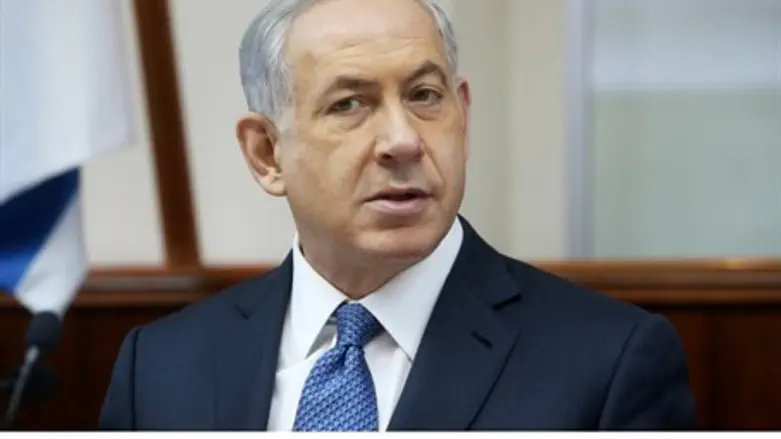
Israeli Prime Minister Binyamin Netanyahu expressed support Sunday for the US fight against Islamic State terrorists, but cautioned against any softening toward Iran.
"We want them both to lose. The last thing we want is to have any one of them get weapons of mass destruction," Netanyahu said in an interview with CBS Face the Nation.
His comments came shortly after ISIS claimed the beheading of another Western hostage, US aid worker Peter Kassig, along with that of 18 men described as Syrian soldiers.
In an undated video, a masked black-clad jihadist seen standing above a severed head says: "This is Peter Edward Kassig, a US citizen of your country." The masked terrorist is believed to be the same British-born Islamist - dubbed "Jihadi-John" - seen in previous execution videos, and who was believed to have been killed or injured in airstrikes last week.
Netanyahu expressed support for US President Barack Obama's leadership of a coalition against ISIS and said "we're with all the American people who understand the savagery that we're all up against."
IS "has to be defeated and it can be defeated," he said.
But Netanyahu insisted that the situation is in fact a "global conflict" against militant Islam, not just Sunni-based ISIS and Al Qaeda but also Shiite Iran-backed Hezbollah.
"We want them both to lose," he said, insisting: "Iran is not your ally. Iran is not your friend. Iran is your enemy."
Those comments were a clear message against alleged cooperation between Washington and Tehran in the battle against ISIS, amid claims that cooperation is being held in return for concessions by the US in negotiations over Iran's nuclear program.
The United States and other Western powers have been negotiating with Iran to limit its nuclear program, with a November 24 deadline for a deal fast approaching.
Netanyahu reiterated Israel's opposition to any agreement that leaves Iran with a residual capacity to enrich uranium, and urged tougher sanctions on Tehran as an alternative to a deal.
"The alternative to a bad deal is not war. The alternative to a bad deal are more sanctions, tougher sanctions, that will make Iran dismantle its capacity to make nuclear bombs," he said.
AFP contributed to this report.
